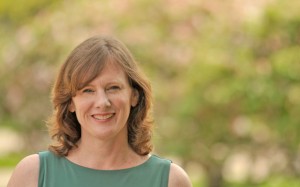Tucker to Study Modern Visual Evidence as Fulbright Fellow in England

Associate Professor Jennifer Tucker has been selected for a Fulbright-U.S. Scholar Award, through which she will spend eight months at the University of York in England.
Tucker is a historian of British science, technology and medicine, specializing in the study of the connections among British science, photography and the visual arts from 1850 to 1920. At the University of York, she will complete work on her second book, tentatively titled, Facing Facts: The Tichborne Cause Célèbre and the Rise of Modern Visual Evidence. She also plans to begin preliminary research toward her next book project, which will trace the social history of Victorian scientific and popular visual depictions of the ocean life before and after the HMS Challenger expedition (1872-1876), which laid foundations for the modern science of oceanography.
The Fulbright Scholar Program, the U.S. government’s flagship program in international educational exchange, was established in 1946. It aims to “increase mutual understanding between the people of the United States and the people of other countries.” According to its website, it has provided more than 300,000 participants with an “opportunity to study, teach and conduct research, exchange ideas and contribute to finding solutions to shared international concerns.” Read more about the program here.
“I’m thrilled,” said Tucker. “The Fulbright is a research award in the History of Art Department at York, and the timing could not be better. I am glad for this chance to complete my current book project and begin a new one in dialogue with several specialists whose interests dovetail so closely with mine.”
Tucker will postpone the scholarship until December so she can finish out her term as acting director of the Allbritton Center for the Study of Public Life, where she is helping enable the faculty and the university to formulate a vision for the Allbritton Center that will engage the curriculum and faculty scholarship, enhance the intellectual life of the university, and guide the search for the next director. Tucker is also associate professor of history, associate professor of science in society, associate professor and chair of feminist, gender and sexuality studies.
Tucker previously studied in England as a Marshall Scholar at the University of Cambridge. She received an M.Phil degree from the University of Cambridge in 1990.
As a Fulbright scholar, Tucker will finish the writing of her second book in conversation with members of the scholarly community in the University of York’s Department of History of Art. The book is the first historical account of the circulation of visual evidence (photos, engravings, cartoons, and newspaper illustrations) in the high-profile 19th century trials of Arthur Orton, a butcher from Australia who claimed to be Sir Roger Charles Tichborne, the missing heir to an aristocratic English estate.
“The Tichborne affair is best known today as a case of imposture, identity, and disputed inheritance that attracted strong working class support and led to the dissolution of the Court of Chancery in 1875. My study will show that the Tichborne affair was also an overlooked landmark in the history of Victorian visual culture,” Tucker wrote in her application for the Fulbright Scholarship.
At York, Tucker also will begin preliminary research for her next major book project using photographic archives in York and the National Media Museum in Bradford and, she hopes, materials from the London Stereoscopic Company in the private collection of guitarist and songwriter, Brian May, from the British rock band, Queen.
“The University of York has remarkable intellectual and archival resources related to my scholarly projects and core teaching interests. In addition to the University’s extraordinary expertise in 19th century British history of art and visual culture and related fields, it is within an hour of the leading archive for British photographic history, the National Media Museum in Bradford: home to the National Photography, Cinematography, Television and New Media Collections,” Tucker writes in her application. “The National Media Museum is a vast repository of primary and archival materials that are invaluable for the 19th century photographic historian, including thousands of historical photographs, specimens of photographic processes from 1839 to the present, camera technologies, and rare surviving 19th century photographic journals, letters and photographic studio records.”
Tucker will present her scholarship to other academics at York and lead a graduate workshop on historical methods of interpreting visual evidence.
In England, she says she is glad for the chance to explore the history, land, music and culture of Yorkshire along with her 8-year-old daughter Josi.

